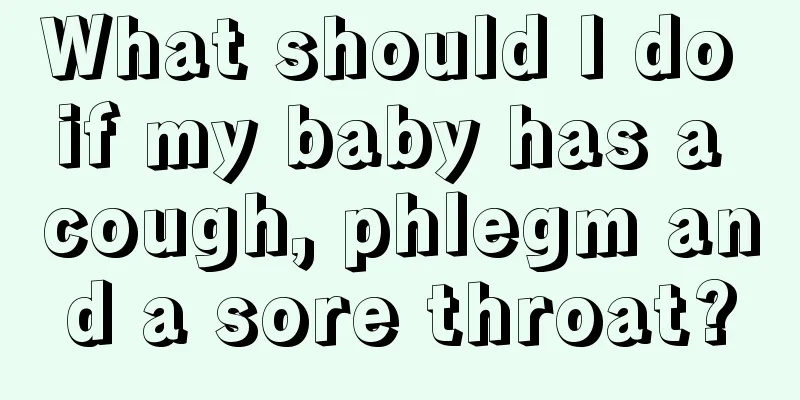Why does my child always burp after feeding?

|
If the child always burps after feeding, you should pay attention to it. There are many reasons for hiccups, such as the child eating too much milk, improper feeding posture, and inhaling too much air. These are important reasons for hiccups after feeding. In addition, you should understand that some children have some physical problems, and this phenomenon is prone to occur at this time. You should go to the hospital for examination in time. 1. The amount of milk you drink. Every baby has a different appetite and food intake. Sometimes a baby doesn’t burp because he or she is not full. It may also be because the baby drinks too much milk and the air inhaled has been pressed in the digestive tract, so it may take a long time for parents to get rid of the burps. In fact, the mother can burp the baby halfway through feeding, and then continue to feed the baby the rest of the milk. If the baby still does not burp, there is no need to keep burping. Just hold the baby in an upright position and let the air rise naturally and then expel it. 2. The amount of air inhaled. Sometimes babies may not burp when they do not inhale much air. For formula-fed babies, the amount of air inhaled is related to the design of the nipple, the size of the nipple hole, and the posture of parents feeding the baby, such as whether the milk fills the entire nipple. Breastfed babies are less likely to inhale too much air because the baby's mouth and the mother's nipple and areola form a vacuum, and air is not easy to enter the baby's mouth, so burping is not necessary when breastfeeding. If parents are worried, they can still burp the baby. If the burping fails, the mother should try to let the baby lie on the right side for half an hour before lying flat. 3. It is usually easier to produce gas when eating formula milk The molecular size of formula milk and whether it is easy to digest will affect the baby's hiccups. Generally, when parents feed their babies formula milk, they are almost always held tightly in their arms. Therefore, it is best for parents to burp their formula-fed babies instead of letting them lie flat without being burped. 4. Constitution. Most babies will burp if they inhale air while drinking milk, but some babies seem to burp more easily. This is a problem of the baby's individual constitution and is related to the gastrointestinal absorption capacity. |
<<: How to care for roseola infantum?
>>: How to treat herpes in children? Common treatments are these
Recommend
What is the treatment for telangiectasia in children?
Recently, the problem of capillary dilation in ma...
How to educate infants and young children in their early years
The main reason for early education for infants a...
Reasons why babies shake their heads before falling asleep
Because of the incomplete development of their se...
Is baby's stiffening while feeding a symptom of cerebral palsy?
When a young mother is breastfeeding her baby, if...
What is the cause of pimples on children's eyes?
It is quite common for children to have pimples o...
Can camellia oil treat baby eczema?
Baby eczema is a very common disease and it is ea...
What should I do if my child has a stomachache in the middle of the night?
Because children's physical development is no...
What are the symptoms of severe calcium deficiency in infants?
When an infant shows severe calcium deficiency, p...
What is the shape of newborn baby's stool?
Today I want to talk to all expectant mothers abo...
Does the smell of plaster affect babies?
Plasters are the most commonly used medicine for ...
What causes heel pain in children?
Heel pain in children is a common disease. Many p...
How to treat smegma in children
The physical health of children is what every par...
Reasons why newborns hum when they sleep
Many young mothers will find that their newborns ...
Why is the nine-month-old baby restless when sleeping?
For new parents, all problems of the baby are a w...
What can primary school students eat to improve their memory?
What should primary school students eat to improv...









